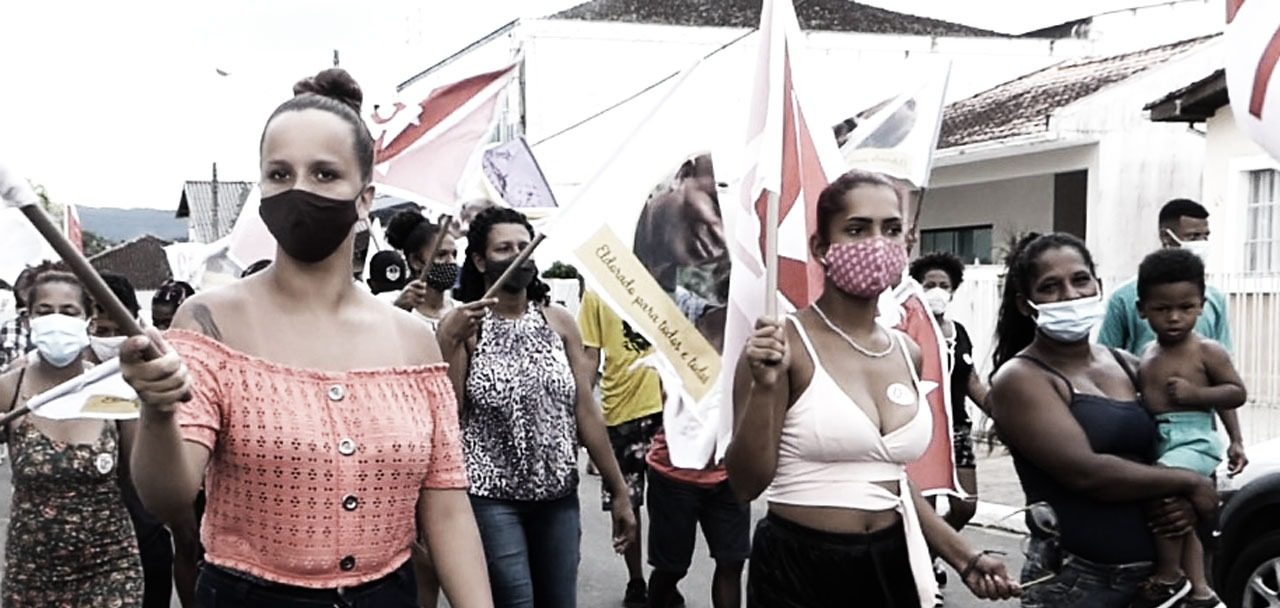As the PT and Brazilian left made modest gains, the Bolsonaro coalition imploded
By Brian Mier
On Sunday, November 15, over 147 million Brazilians went to the polls in the largest round of local elections in the nation’s history. One state, Amapa, had to cancel most of its elections due the fact that most of it has been without electricity for over 2 weeks because of the massive failure of the privatization of it’s power grid. In the other 25 states elections went smoothly, with the biggest complaint being the 3 hour delay due to computer glitches which caused final results to be announced only 7 hours after the polls closed (watch and learn, USA).
“Bolsonaro’s right wing extremism was the big loser in these elections,” said former President Lula today on Twitter, “the strengthening of the left and of its values of humanism and social justice shows that it is possible to rebuild another Brazil which is more fraternal and has more solidarity.”
The fact is that it was a day of crushing defeat for President Bolsonaro, whose support in this election cycle was so toxic that some candidates, including Marcelo Crivella in Rio and Marcelo Russomano in São Paulo are rumored to have asked him to stop publicly supporting them in the final stages of their campaigns.
Across Brazil it was a day of staggering losses for the kind of opportunistic charlatans that made up Bolsonaro’s support base in 2018. In both Rio and São Paulo, popularity for candidates from Bolsonaro’s support base in the Universal Kingdom of God prosperity gospel church plummeted in the final weeks of the campaign, both dropping from initial first place positions, with Russomano failing to make it to the final round in São Paulo, and Crivela, who is the incumbent Mayor in Rio, squeaking into the final round 12 points behind former Mayor Eduardo Paes.
In state after state where Bolsonaro received his greatest support in the 2018 presidential elections, opportunistic anti-political clown candidates ended up in the single digits. In 2018, over 70% of the northern state of Rondonia voted for Bolsonaro but on Sunday, his Republicanos party coalition candidate “Lindomar the Waiter” ended up with 5%, in an election that was won by a candidate from the traditional center-right PSDB.
Local politics in Brazil is traditionally dominated by groups of elite ruralist families descended from slave owners who fight among themselves and often switch parties from election to election. There has never been a moment in Brazilian history in which the left has held anywhere even close to a majority of local governments. Presidents tend to raise the boats of their parties though, and the Workers Party (Partido dos Trabalhadores/PT) hit its all time high point with around 600 mayors in 2012 while Dilma Rousseff was President. In 2016, during the apex of a 3 year national and international media smear campaign which treated frivolous corruption charges against Rousseff and other prominent party leaders is if they were fact before they went to trial, the PT suffered crushing loses, bringing the number of mayors down to 251, with only 1 mayor making it to the final round in any of the G96 – the name given to Brazil’s 26 state capitals plus it’s 70 cities with over 200 inhabitants.
This year the PT’s downward slide in number of mayors offices continued to 189 after the first round, but PT candidates made it to the runoff stage in 15 cities of the G96, meaning that in terms of total number of votes and size of city budgets involved, it has broken party records. PT candidates won the first round in important regional industrial cities like São Gonçalo, RJ (Pop. 1 million), Feira da Santana, Bahia (pop 619,000), Diadema, SP (pop 420,000), Caxias do Sul, RS (Pop. 420,000) and Contagem, MG (Pop. 380,000). In the state capitals in Recife and Vitoria, PT candidates made it to the second round. The case in Recife (Pop. 1.5 million) is emblematic, the final round will be between two left party candidates, Jose Campos (PSB) and Marilia Arraes (PT), who are cousins and will certainly continue to work together regardless of who wins the runoff.
In all, 898 candidates from left or center left parties were elected mayor yesterday, and dozens more are advancing to the runoff stage. Standouts from other left political parties include Manuela d’Ávila from the Communist Party of Brazil (Partido Communista do Brasil/PC do B) in Porto Alegre. After suffering vicious sexist attacks during the debates, d’Ávila, who was Fernando Haddad’s 2018 Vice Presidential running mate, made the final round on a coalition ticket with PT . In Belem, PA, Socialist and Freedom Party (Partido de Socialismo e Liberdade/PSOL) candidate Edmilson Rodrigues won the first round and will face off against “Federal Police Agent Eguchi” from the Bolsonaro affiliated Patriotas party in the runoff after beating him by 12%. Finally, in Brazil’s largest city, of São Paulo PSOL candidate Guilherme Boulos, running on a ticket with 85 year old beloved former mayor Luiza Erundina, shocked many by beating Bolsonaro-supported candidate Celso Russomano into the final round against incumbent, center-right mayor Bruno Covas. Boulos was a faithful ally to Lula during the entire time of his political imprisonment and after the results came in both the former President and losing PT candidate Jilmar Tatto immediately called on their supporters to back him in the final round.
Although it may not have been a huge day of victory for the Brazilian left, most left parties seem satisfied with the results. After all, it is not every year that an incumbent president suffers such huge losses during the first local elections in his mandate. The next two weeks will see a series of interesting debates and a move toward unity of the Brazilian left, which has increased since the US-backed 2016 coup and election of neofascist clown President Jair Bolsonaro.
[qpp]

